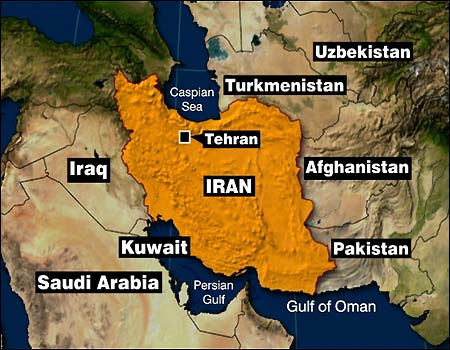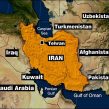Jihadis Speculate on Secret Cooperation between Iran and al-Qaeda
Publication: Terrorism Focus Volume: 6 Issue: 6
By:

A discussion in jihadi internet forums triggered by a posting entitled "Is there a secret cooperation between Iran and al-Qaeda?" raised suspicions over possible clandestine connections between Shiite Iran and al-Qaeda, the self-declared enemy of Shi’ism (muslm.net, February 18, 2008).
A jihadi forum chatter nicknamed al-Natiq bil-Shahada posted a message in the jihad forum that raised the issue of al-Qaeda’s possible secret relations with Iran. Even though Iran’s Islamic creed is in stark contrast with al-Qaeda’s Salafi-Jihadi ideology, Shahada wonders why al-Qaeda never targeted Iranian interests inside or outside Iran. "Much skepticism revolves around al-Qaeda. Al-Qaeda has been active in Morocco, Algeria, Iraq, Saudi Arabia, Jordan, Yemen, Egypt, Europe and the U.S. but never in Iran," says Shahada, who goes on to cite new Western reports of a letter allegedly sent from al-Qaeda to Iran’s leadership, thanking them for the support of the Revolutionary Guards in carrying out the September 2008 attack on the U.S. embassy in Yemen (Daily Telegraph, November 24, 2008).
Justifying the absence of al-Qaeda attacks on Iran, some forum members responded to Shahada’s suspicions by noting that there is a big ideological gap between Iran and al-Qaeda, but the latter had to refrain from attacking Iran because many members of al-Qaeda are in Iran, either as prisoners or as fugitives sought by Iranian authorities. Also, Iran’s porous border with Afghanistan and Pakistan allows al-Qaeda members to exit the region whenever necessary.
On the other hand, some forum participants pointed out al-Qaeda serves Iranian goals by exhausting and weakening Sunni Muslims. If al-Qaeda was not serving Iranian strategic objectives in the region, Iran would have cracked down on al-Qaeda in Iraq and tightened its borders with Afghanistan and Pakistan, given Iran’s influence in Iraq. "Al-Qaeda only attacks soft targets. If al-Qaeda harasses Iran in Iraq, Iran would finish off al-Qaeda in a few days," says a forum chatter nicknamed Ali al-Hashimi.
According to another forum member nicknamed Abu Issa, there are other reasons that prevent al-Qaeda from attacking Iran. Public opinion in the Islamic world supports Iran on the false belief that Iran is the only Islamic country confronting U.S. expansion in the region by backing Hezbollah against Israel. Also, Iran began to demonstrate animosity towards Sunni Muslims only in the last few years. Retribution attacks by al-Qaeda against Iran will take some time, especially with the lack of Iranian members of al-Qaeda. The current members of al-Qaeda in Iran are either in prison or under house arrest. Even though al-Qaeda has not struck in Iran, many Iranian-backed militiamen were killed by al-Qaeda in Iraq.
Responding to the claim that al-Qaeda has no presence in Iran, Abu Issa said that the Iranian Sunni group Jondallah is a Salafi-Jihadi group affiliated with al-Qaeda and is already waging jihad operations in Iran (see Terrorism Monitor, February 9). Jondallah is an Iranian Sunni insurgent group based in Balochistan, but many regard it as being inspired by nationalism rather than Salafi-Jihadism. The group’s amir, Abdul Malik Baluchi, has denied any association with al-Qaeda (al-Arabiya.net, February 22). In the same context, a member of another forum corroborated Abu Issa’s claim by saying that al-Qaeda is responsible for bombing a mosque in the Iranian city of Shiraz five month ago (nationalkuwait.com, February 21, 2009).
Some jihadi forum members referred to press reports released by Arab news agencies confirming some kind of connection between al-Qaeda and Iran. These reports suggest that 35 wanted Saudi al-Qaeda members are in Iran or in the Pakistan-Afghanistan-Iran triangle. Al-Qaeda members in Iran led by Salah al-Qar’awi (a.k.a. Nijm-he uses another 14 pseudonyms) are reported to be planning terrorist attacks in Saudi Arabia or Jordan, and others are planning to join al-Qaeda in Yemen (moheet.com, February 5). Al-Qar’awi received intensive training on electronic detonators in Iran and uses Iranian territories as a launching pad for terrorist activities that extend to Iraq and Lebanon (moheet.com, February 5). Other reports referred to by forum members indicated that Iranian Mullahs previously hosted prominent al-Qaeda members in Iran, such as Muhammad Ibrahim Makkawi (a.k.a. Saif al-Adel), Sa’ad bin Laden (Osama bin Laden’s son), and Ayman al-Zawahiri (Al-Sharq al-Awsat, July 1, 2003). According to the forum members, al-Zawahiri has close relations with Iranian Revolutionary Guard Brigadier Mohammad Baqir al-Qadir. Finally, some forum members highlighted Iran’s refusal to hand over to their countries of origin al-Qaeda members who fled from Afghanistan into Iran.
Regardless of the ideological differences between Iran and al-Qaeda, they share a mutual enemy, the United States. The temporary mutual objective of al-Qaeda and Iran is to rid the Arab and Islamic countries of U.S. influence and exploitation. Once this provisional common objective elapses, Shiite-Sunni ideological differences will likely hinder any further cooperation between the two sides.





